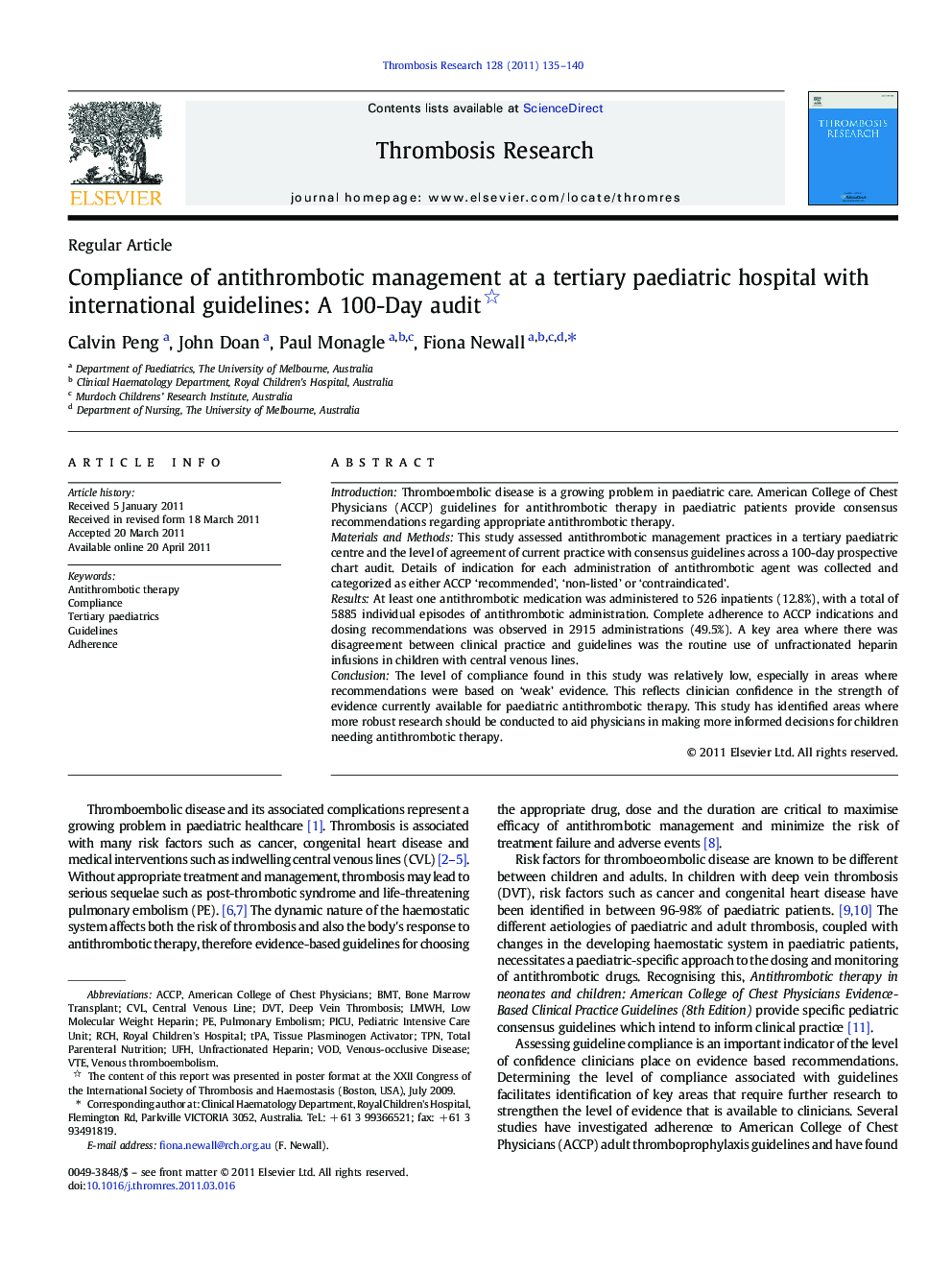| Article ID | Journal | Published Year | Pages | File Type |
|---|---|---|---|---|
| 3028410 | Thrombosis Research | 2011 | 6 Pages |
IntroductionThromboembolic disease is a growing problem in paediatric care. American College of Chest Physicians (ACCP) guidelines for antithrombotic therapy in paediatric patients provide consensus recommendations regarding appropriate antithrombotic therapy.Materials and MethodsThis study assessed antithrombotic management practices in a tertiary paediatric centre and the level of agreement of current practice with consensus guidelines across a 100-day prospective chart audit. Details of indication for each administration of antithrombotic agent was collected and categorized as either ACCP ‘recommended’, ‘non-listed’ or ‘contraindicated’.ResultsAt least one antithrombotic medication was administered to 526 inpatients (12.8%), with a total of 5885 individual episodes of antithrombotic administration. Complete adherence to ACCP indications and dosing recommendations was observed in 2915 administrations (49.5%). A key area where there was disagreement between clinical practice and guidelines was the routine use of unfractionated heparin infusions in children with central venous lines.ConclusionThe level of compliance found in this study was relatively low, especially in areas where recommendations were based on ‘weak’ evidence. This reflects clinician confidence in the strength of evidence currently available for paediatric antithrombotic therapy. This study has identified areas where more robust research should be conducted to aid physicians in making more informed decisions for children needing antithrombotic therapy.
